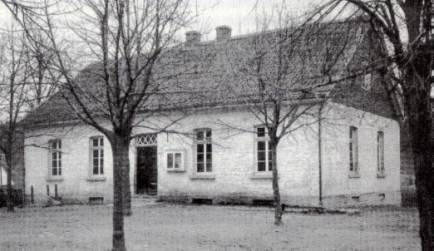My father was very hot tempered, especially when he puni- shed his children. But this is understandable because he had to keep 9 children in order.
I'll never forget an event which I experienced during my school years. One of the boys in the classroom behind me talked during the lesson and the teacher asked me who had talked. I
x
answered: "I do not know." And that was true. The teacher did not believe me. And as a punishment I was told to write "I
f
am a liar" 10 times. I told my father about it and he wrote a letter to the teacher in his clear and characteristic letters: "Dear Mr.
f
teacher! I am sorry that you are so coarse and childish. If
f
someone is a liar, so he may write it. But not my son!
This deportment of my father impressed me so deeply that even today I still remember clearly the exact words of the letter he wrote. Then my father ordered me to take the letter to the school and on no account to write the sentence the teacher demanded from me. The teacher took the letter, went to my sister and asked her if my father had written the letter. "Yes!" said my sister. But now the teacher again ordered that I was to write: "I am a liar!" I told the teacher that my father had forbidden to do that.

Harscheid school building, built in 1837
© Kurt Müller 2022
Start page
Simon - Dax
Simon - Dax

Kaspar Heinrich Simon".
Kaspar Heinrich Simon
born 13. May 1818 in Hoff
died 11. February 1884 in Harscheid
died 11. February 1884 in Harscheid
Elisabeth Dax
born 28. October 1814 in Harscheid
died 17. February 1885 in Harscheid
died 17. February 1885 in Harscheid

Simon
Dax





Menü